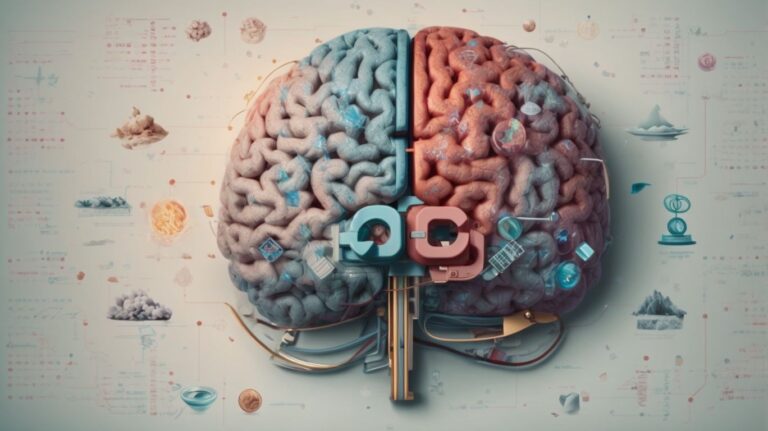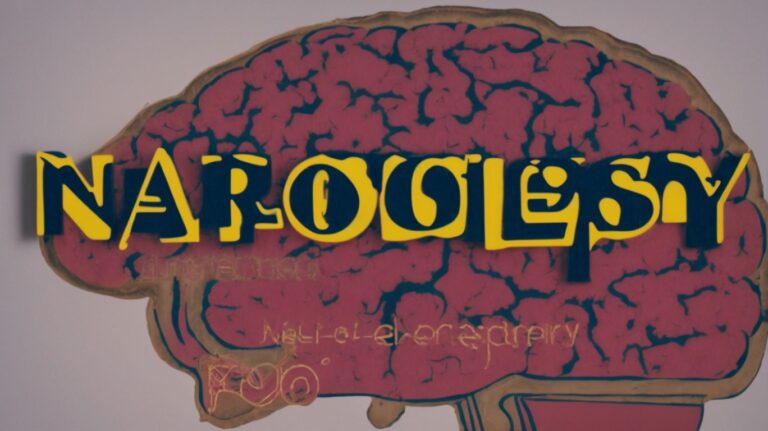Have you ever wondered about the connection between chromosomes and psychology? From influencing personality and behavior to impacting psychological disorders, chromosomes play a significant role in the field of psychology.
In this article, we will explore the role of chromosomes in shaping human psychology, the impact of chromosomal abnormalities on mental health, and how studying chromosomes can help us better understand various psychological conditions. Join us as we delve into the fascinating intersection of genetics and psychology.
Contents
- 1 Key Takeaways:
- 2 What Are Chromosomes?
- 3 How Many Chromosomes Do Humans Have?
- 4 What Is the Role of Chromosomes in Psychology?
- 5 How Do Chromosomes Impact Psychological Disorders?
- 6 How Can Studying Chromosomes Help in Understanding Psychology?
- 7 Frequently Asked Questions
- 7.1 What is the role of chromosomes in psychology?
- 7.2 How do chromosomes affect behavior?
- 7.3 Can chromosomes impact intelligence?
- 7.4 Are there specific chromosomes related to mental disorders?
- 7.5 How do chromosomes contribute to gender identity?
- 7.6 Can changes in chromosomes lead to psychological disorders?
Key Takeaways:
- Chromosomes play a significant role in shaping personality traits and behavior.
- Chromosomal abnormalities can have an impact on mental health and increase the risk of developing certain disorders.
- Studying chromosomes can provide valuable insights into understanding psychological disorders and lead to new advancements in treatment and prevention.
What Are Chromosomes?
Chromosomes are thread-like structures located inside the nucleus of animal and plant cells, made up of DNA and proteins, carrying genes that determine heredity, a fundamental aspect of all living organisms.
Each chromosome consists of a single molecule of DNA, which carries the genetic instructions for the development, functioning, growth, and reproduction of all known organisms.
The genes, located on specific regions of the chromosome, are responsible for the traits inherited from one generation to the next. These genes serve as the blueprint for synthesizing proteins, the essential molecules that regulate the body’s systems and functions.
How Many Chromosomes Do Humans Have?
Humans typically have 23 pairs of chromosomes in their cells, totaling 46 chromosomes, with variations and abnormalities in chromosome numbers leading to genetic disorders and diverse phenotypic outcomes.
These 46 chromosomes comprise 22 pairs of autosomes and one pair of sex chromosomes.
Each chromosome contains numerous genes that encode the information necessary for various biological processes.
The genetic variations within these chromosomes contribute to the immense genetic diversity observed among individuals.
Abnormalities in chromosome numbers, such as trisomy or monosomy, can result in conditions like Down syndrome or Turner syndrome, respectively.
The intricate interaction of these chromosomes dictates an individual’s traits, susceptibility to diseases, and response to medical treatments.
What Is the Role of Chromosomes in Psychology?
Chromosomes play a pivotal role in shaping psychological traits and conditions, contributing to the understanding of genetic influences on behavior, gender differentiation, and susceptibility to certain psychological disorders.
Genetic testing has provided valuable insights into the link between specific chromosomal variations and psychological tendencies.
The interplay between X and Y chromosomes, for instance, is known to underpin the development of gender identity. Variations in chromosomal composition can influence the expression of certain genes, impacting an individual’s susceptibility to conditions such as autism, schizophrenia, and bipolar disorder.
How Do Genetics Influence Personality?
Genetics exert a profound influence on personality traits, encompassing a spectrum of genetic variations, mutations, and the impact of natural selection on the evolution of personality-related genes.
The genetic basis of personality traits is a fascinating area of study that delves into the complexities of human behavior. It is widely accepted that genes play a significant role in shaping an individual’s personality, influencing various aspects such as temperament, sociability, and emotional responses.
Understanding the genetic underpinnings of personality can provide valuable insights into human nature and behavior.
Researchers have identified specific genetic markers associated with certain traits, but the exact mechanisms of how genes influence personality are still being studied.
Can Chromosomal Abnormalities Affect Mental Health?
Chromosomal abnormalities can significantly impact mental health, contributing to a spectrum of genetic conditions and inherited mutations that may be identified through genetic testing.
These abnormalities, such as aneuploidy, microdeletions, and translocations, can lead to various mental health challenges, including intellectual disabilities, autism spectrum disorders, and psychiatric conditions.
Understanding the link between chromosomal abnormalities and mental health is crucial for early intervention and personalized treatment strategies.
Genetic testing plays a vital role in identifying these genetic abnormalities, enabling healthcare professionals to make informed decisions regarding interventions and support for individuals affected by such conditions.
Do Chromosomes Play a Role in Intelligence?
Chromosomes contribute to the genetic factors that influence intelligence, encompassing genetic markers, variations within genetic material, and the complex mechanisms of gene expression that shape cognitive abilities.
This intricately woven relationship between chromosomes and intelligence involves the presence of specific genetic markers that have been linked to certain cognitive functions.
Variations in the genetic material, such as single nucleotide polymorphisms (SNPs) and copy number variations (CNVs), play a pivotal role in the diverse spectrum of intelligence levels observed in individuals.
The intricate processes of gene expression dictate the extent to which genetic information is translated into cognitive traits, adding another layer of complexity to the interplay between genetics and intelligence.
What Is the Connection Between Chromosomes and Behavior?
Chromosomes hold a significant connection to behavior, as the genetic structure, nucleotide sequences, and processes of protein synthesis encoded within chromosomes contribute to behavioral traits and tendencies.
Genetic structure, composed of DNA sequences, plays a crucial role in determining an individual’s behavioral patterns.
The arrangement of nucleotide sequences along the chromosome dictates the production of specific proteins, which directly influence neural development and functioning, ultimately shaping an organism’s behavior.
The intricate mechanism of protein synthesis, governed by genetic instructions, orchestrates the production of neurotransmitters, receptors, and signaling molecules, all pivotal for modulating behavioral responses.
How Do Chromosomes Impact Psychological Disorders?
Chromosomes exert a significant impact on the development and manifestation of psychological disorders, encompassing genetic composition, mutations, and the interplay of genetic and environmental factors in disorder susceptibility.
Genetic composition, determined by the arrangement of genes on each chromosome, plays a pivotal role in the predisposition to various psychological disorders.
The presence of genetic mutations, such as deletions or duplications in specific chromosomal regions, can lead to altered gene expression patterns, disrupting the delicate balance of neurotransmitters and signaling pathways related to mental health.
The complex interaction between an individual’s genetic makeup and environmental stimuli, including stress, trauma, and lifestyle factors, contributes to the nuanced development of psychological disorders.
Can Chromosomal Anomalies Cause Mental Illness?
Chromosomal anomalies can contribute to the onset and progression of mental illness, involving a spectrum of genetic conditions, variations, and intricate genetic information that impact psychological well-being.
When chromosomal anomalies occur, they may lead to various genetic conditions such as Down syndrome, Turner syndrome, or Klinefelter syndrome, each with its own unique impact on mental health.
The presence of certain variations in the genetic makeup can predispose individuals to conditions like schizophrenia, bipolar disorder, or autism spectrum disorders. Understanding the genetic underpinnings of these mental health challenges can provide valuable insights into the personalized treatment approaches and early intervention strategies.
By unraveling the complex interplay between genetic information and psychological well-being, researchers can pave the way for targeted therapies and more effective management of mental illnesses.
Do Certain Chromosomes Increase the Risk of Developing Specific Disorders?
Certain chromosomes may elevate the risk of developing specific disorders, characterized by the presence of unique genetic markers, variations in genetic material, and their association with disorder susceptibility.
The role of genetic markers on these chromosomes is crucial as they can indicate the likelihood of developing a particular disorder.
For example, studies have shown that variations in chromosome 21 are associated with an increased susceptibility to Down syndrome, a genetic disorder characterized by an extra copy of chromosome 21.
The influence of genetic material, such as DNA sequence variations or gene mutations on chromosome 7, has been linked to the development of cystic fibrosis, a hereditary disorder affecting the lungs and digestive system.
What Is the Role of Chromosomes in Inherited Mental Health Conditions?
Chromosomes play a pivotal role in inherited mental health conditions, involving the interplay of genetic mutations, natural selection, and the transmission of essential genetic information that underlies inherited psychological traits.
Chromosomes, composed of DNA and proteins, are the carriers of genetic information in all living organisms.
The unique combination of genes on each chromosome influences the individual’s inherited traits. Genetic mutations, such as deletions or duplications of specific chromosomal segments, can lead to variations in inherited mental health conditions.
Natural selection plays a critical role in preserving advantageous genetic variations related to mental health, contributing to the perpetuation of certain psychological traits within populations over time.
The transmission of essential genetic information across generations via chromosomes serves as the cornerstone of inherited psychological traits, forming the basis of predispositions to mental health conditions.
How Can Studying Chromosomes Help in Understanding Psychology?
Studying chromosomes provides valuable insights into understanding psychology, shedding light on the role of genetic testing, genetic disorders, and the intricate genetic sequences that underpin psychological traits and conditions.
The exploration of chromosomes in the context of psychology offers a deep dive into the genetic foundation of behavior, cognition, and emotions.
By analyzing genetic testing results, researchers can uncover the potential predisposition to certain psychological traits, paving the way for personalized intervention strategies and targeted therapies.
The study of genetic disorders linked to specific chromosome anomalies provides crucial insights into the etiology of various psychological conditions, fostering a more comprehensive approach to diagnosis and treatment.
Delving into the intricate genetic sequences enables scientists to identify genetic variations associated with personality traits, mental health disorders, and cognitive abilities.
Understanding these sequences contributes to elucidating the complex interplay between genetics and psychology, opening new avenues for developing tailored interventions and advancing our comprehension of individual differences in psychological functioning.
What Research Has Been Done on the Relationship Between Chromosomes and Psychology?
Extensive research has been conducted on the relationship between chromosomes and psychology, diving into the complexities of genetic makeup, variations, and the intricate processes of gene expression that shape psychological phenomena.
One of the significant areas of focus in this research is the exploration of how chromosomal variations and genetic predispositions contribute to individual differences in psychological attributes.
Studies have highlighted specific gene markers associated with various psychological conditions, shedding light on the interplay between genetic factors and environmental influences.
Understanding the role of epigenetics in regulating gene expression has also brought new insights into the complex interaction between genes and psychological outcomes.
What Are the Future Implications of Studying Chromosomes in Psychology?
The future implications of studying chromosomes in psychology hold promise for advancing our understanding of genetic information, unraveling genetic disorders, and deciphering the intricate coding embedded within the human genome that influences psychological traits.
By diving into the study of chromosomes in psychology, researchers could uncover new insights into how genetic variations contribute to mental health conditions and behavioral patterns.
This could potentially revolutionize the field of psychology by providing a deeper understanding of the role genetics play in influencing individual differences in cognition, personality, and susceptibility to psychological disorders.
This could open doors for the development of more personalized and targeted interventions for individuals based on their unique genetic makeup, thereby enhancing the efficacy of psychological treatments.
The potential advancements in this area could pave the way for groundbreaking progress in mental health research and interventions, ultimately benefiting individuals and society as a whole.
Frequently Asked Questions
What is the role of chromosomes in psychology?
Chromosomes play a crucial role in determining various psychological traits such as behavior, intelligence, and mental disorders.
How do chromosomes affect behavior?
Chromosomes contain genes that code for proteins, which influence brain development and the production of neurotransmitters, ultimately impacting behavior.
Can chromosomes impact intelligence?
Yes, certain chromosomes carry genes that have been linked to intelligence, and variations in these genes can affect an individual’s level of intelligence.
Yes, research has identified certain chromosomes that may play a role in the development of mental disorders such as schizophrenia, bipolar disorder, and autism.
How do chromosomes contribute to gender identity?
The presence or absence of certain chromosomes, specifically the X and Y chromosomes, determines an individual’s sex, which can influence their gender identity.
Can changes in chromosomes lead to psychological disorders?
Yes, alterations or mutations in chromosomes, such as deletions or duplications, can disrupt the normal functioning of genes and contribute to the development of psychological disorders.




